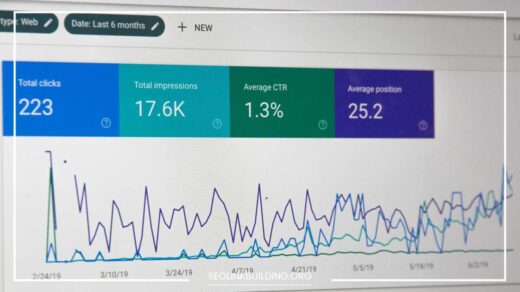2024 Online Marketing Mastery: Strategies & Trends

Online Marketing
Conquering the Digital Landscape: A Comprehensive Guide to Online Marketing in 2024
In today’s hyper-connected world, consumers are bombarded with messages vying for their attention. Traditional marketing tactics, while still valuable, need a powerful digital companion to truly thrive.
Enter online marketing, the dynamic umbrella encompassing all internet-based strategies to promote your brand, products, or services.
This comprehensive guide delves into the ever-evolving world of online marketing, equipping you with the knowledge and tools to navigate this vast landscape. We’ll explore:
- The Fundamentals: Understanding Online Marketing
- Core Strategies for Success
- Emerging Trends Shaping the Future
- Building a Winning Online Marketing Strategy
- Measuring and Optimizing Your Campaigns
The Fundamentals: Understanding Online Marketing
At its heart, online marketing is about leveraging the power of the internet to connect with your target audience in a meaningful way. It’s a multifaceted approach utilizing various channels to achieve specific goals, such as:
- Brand Awareness: Establishing your brand identity and increasing recognition among potential customers. This could involve social media campaigns, influencer marketing, or strategic content creation.
- Lead Generation: Capturing the interest of potential customers and converting them into qualified leads who are more likely to make a purchase. This might involve offering valuable content downloads, lead magnets, or targeted email campaigns.
- Website Traffic: Attracting visitors to your website or landing pages. This can be achieved through organic search engine optimization (SEO), paid advertising campaigns, or social media promotion.
- Engagement: Fostering interaction and building relationships with your audience. This might involve hosting interactive webinars, participating in social media conversations, or creating engaging video content.
- Sales and Conversions: Ultimately, converting leads into paying customers and achieving your business goals. This could involve optimizing your website for conversions, implementing retargeting campaigns, or offering irresistible promotions.
The beauty of online marketing lies in its measurability. Unlike traditional methods, you can track the performance of your campaigns in real-time using analytics tools.
This allows for data-driven optimizations, maximizing your return on investment (ROI) and ensuring your efforts are aligned with your target audience’s needs.
Core Strategies for Online Marketing Success
Now that we’ve established the foundation, let’s delve into the core strategies that power a successful online marketing campaign:
-
Search Engine Optimization (SEO):
This strategy optimizes your website and content to rank higher in search engine results pages (SERPs) for relevant keywords. Think of it as the magic key that unlocks organic traffic – the free flow of visitors from search engines. By implementing SEO best practices, such as keyword research, on-page optimization, and link building, you ensure your website appears at the top when someone searches for products or services you offer. -
Content Marketing:
High-quality, informative, and engaging content is the lifeblood of online marketing. It attracts visitors, establishes you as a thought leader, and builds trust with your audience. Content marketing encompasses various formats – blog posts, articles, infographics, videos, ebooks, case studies, and even podcasts. The key is to tailor your content to your target audience’s needs, interests, and stage in the buyer’s journey. -
Social Media Marketing:
Social media platforms like Facebook, Instagram, Twitter, LinkedIn, and YouTube offer unparalleled opportunities for connecting with your audience in a casual and interactive way. Here, you can share your content, engage in conversations, build communities, and humanize your brand. Utilize social media analytics tools to understand your audience demographics, content preferences, and engagement levels. This data will help you tailor your social media strategy for maximum impact. -
Pay-Per-Click (PPC) Advertising:
PPC advertising allows you to display targeted ads on search engines (like Google Ads) and other websites. You only pay when someone clicks on your ad, driving high-intent traffic to your landing pages or website. PPC campaigns can be highly effective for generating leads, promoting specific products or services, and driving sales. -
Email Marketing:
Despite the rise of new channels, email marketing remains a powerful tool for nurturing leads and fostering customer relationships. Build an email list of subscribers who have opted-in to receive your communications. Then, nurture leads with targeted email campaigns promoting new products, sharing valuable content, offering exclusive deals, and providing exceptional customer service. -
Affiliate Marketing:
Partner with other websites or influencers in your niche to promote your products or services in exchange for a commission on sales generated through their referrals. Affiliate marketing allows you to tap into established audiences and leverage the credibility of your partners.
Emerging Trends Shaping the Future of Online Marketing
The online marketing landscape is constantly evolving. Here are some key trends shaping the future:
-
Artificial Intelligence (AI):
AI is revolutionizing online marketing by automating tasks, personalizing experiences, and delivering highly targeted campaigns. From chatbots that answer customer inquiries 24/7 to AI-powered content creation and dynamic ad personalization, expect AI to play a more prominent role in streamlining workflows, optimizing campaign performance, and gaining deeper customer insights. -
Voice Search Optimization:
With the rise of voice assistants like Siri, Alexa, and Google Assistant, optimizing your website and content for voice search is becoming increasingly crucial. Voice search queries tend to be phrased as natural language questions, so ensure your content is structured accordingly and targets long-tail keywords that reflect how people speak. -
Augmented Reality (AR) and Virtual Reality (VR):
AR and VR technologies are transforming the way brands engage with customers. Imagine virtually trying on clothes in a fitting room app or experiencing a vacation destination through a VR headset. As these technologies become more accessible and affordable, expect them to play a significant role in online marketing strategies, particularly for e-commerce and travel industries. -
Focus on Customer Experience (CX):
In today’s competitive landscape, exceptional customer experience (CX) is paramount. Online marketing strategies need to prioritize customer needs and journeys, ensuring seamless interactions across all touchpoints. This might involve implementing live chat functionalities, personalized product recommendations, or omnichannel marketing campaigns that deliver a consistent brand experience. -
Micro-Influencer Marketing:
While celebrity endorsements still hold weight, partnering with micro-influencers (those with engaged followings of 10,000 to 50,000) is gaining traction. Micro-influencers often have higher engagement rates and a more targeted audience, allowing for more authentic brand partnerships that resonate with their followers. -
The Rise of Short-Form Video Content:
Platforms like TikTok and Instagram Reels have exploded in popularity, and short-form video content is here to stay. Marketers are capitalizing on this trend by creating engaging and informative video snippets that capture attention spans and promote brand messages in a visually compelling way. -
Livestream Shopping:
Livestream shopping experiences, where brands showcase products and interact with viewers in real-time, are gaining momentum. This interactive format allows for product demonstrations, influencer collaborations, and exclusive offers, driving sales and fostering a sense of community.
Building a Winning Online Marketing Strategy
Now that you’re familiar with the core strategies and emerging trends, it’s time to craft a winning online marketing strategy. Here’s a step-by-step approach:
-
Define Your Target Audience:
The foundation of any successful marketing campaign is a deep understanding of your target audience. Who are you trying to reach? What are their demographics, interests, pain points, and online behavior? Buyer personas can be a valuable tool to profile your ideal customer. -
Set SMART Goals:
Specific, Measurable, Achievable, Relevant, and Time-Bound (SMART) goals will guide your online marketing efforts and provide a benchmark for measuring success. Do you want to increase website traffic by 20% in the next quarter? Generate 100 qualified leads per month? SMART goals ensure your campaigns are aligned with your overall business objectives. -
Develop a Content Strategy:
High-quality content is the cornerstone of attracting and engaging your target audience. Create valuable content that addresses their needs, educates them about your industry, and showcases your brand expertise. -
Choose the Right Channels:
Not all online marketing channels are created equal. Select the channels where your target audience spends their time. This might involve a combination of SEO, social media marketing, email marketing, PPC advertising, or a strategic mix depending on your industry and goals. -
Integrate Your Efforts:
For maximum impact, ensure your online marketing efforts are cohesive and integrated across all channels. This might involve developing a consistent brand voice, using the same visuals across platforms, and promoting your social media channels on your website. -
Measure and Analyze:
Data is your friend in online marketing. Utilize analytics tools to track the performance of your campaigns, identify what’s working and what’s not, and make data-driven optimizations for continuous improvement.
Measuring and Optimizing Your Campaigns
Once your online marketing campaigns are launched, ongoing measurement and optimization are crucial. Here’s what you need to track:
-
Website Traffic: Monitor website traffic sources, user behavior, and key metrics like bounce rate and conversion rate. Tools like Google Analytics provide valuable insights for website optimization.
-
Social Media Engagement: Track key metrics like follower growth, engagement rates (likes, comments, shares), and click-through rates on your social media posts. Utilize social media analytics tools offered by each platform to understand your audience and tailor your content strategy accordingly, ensuring meaningful interactions and fostering a thriving online community.
-
Email Marketing Performance: Track key metrics like open rates, click-through rates, and unsubscribe rates for your email marketing campaigns. A/B testing different subject lines, email content, and call-to-actions can help you optimize your email campaigns for better performance.
-
PPC Campaign Performance: Monitor metrics like impressions, clicks, cost-per-click (CPC), and conversion rates for your PPC campaigns. Analyze which keywords are driving the most qualified traffic and adjust your bids accordingly.
-
ROI: Ultimately, you need to measure the return on investment (ROI) of your online marketing efforts. This involves calculating the revenue generated from your campaigns compared to the cost of running them. By analyzing ROI, you can determine which channels are delivering the most value and optimize your budget allocation.
Beyond the Basics: Advanced Online Marketing Techniques
As you gain experience, consider incorporating these advanced online marketing techniques:
-
Marketing Automation: Leverage marketing automation platforms to streamline repetitive tasks, personalize customer journeys, and deliver targeted campaigns at scale.
-
Remarketing Campaigns: Retarget website visitors who have shown interest in your products or services but haven’t converted yet. This can be done through display advertising, social media retargeting, or abandoned cart emails.
-
Conversion Rate Optimization (CRO): Optimize your website and landing pages to convert visitors into leads or customers. This might involve A/B testing different headlines, call-to-action buttons, and website layouts to identify the elements that drive the most conversions.
-
Influencer Marketing: Partner with relevant influencers in your niche to promote your brand and reach a wider audience. Micro-influencers can be particularly effective for building trust and brand awareness.
-
Local SEO: If you have a brick-and-mortar location or target a local audience, optimize your website and online presence for local search. This includes claiming your Google My Business listing, building local citations, and creating content that targets local keywords.
Final Word
The ever-evolving world of online marketing presents both challenges and exciting opportunities. By embracing the core strategies, staying informed about emerging trends, and continuously optimizing your campaigns, you can leverage the power of the internet to achieve your business goals and build a thriving online presence.
Remember, online marketing is a journey, not a destination. Be prepared to adapt, experiment, and learn as you navigate the ever-changing digital landscape.













